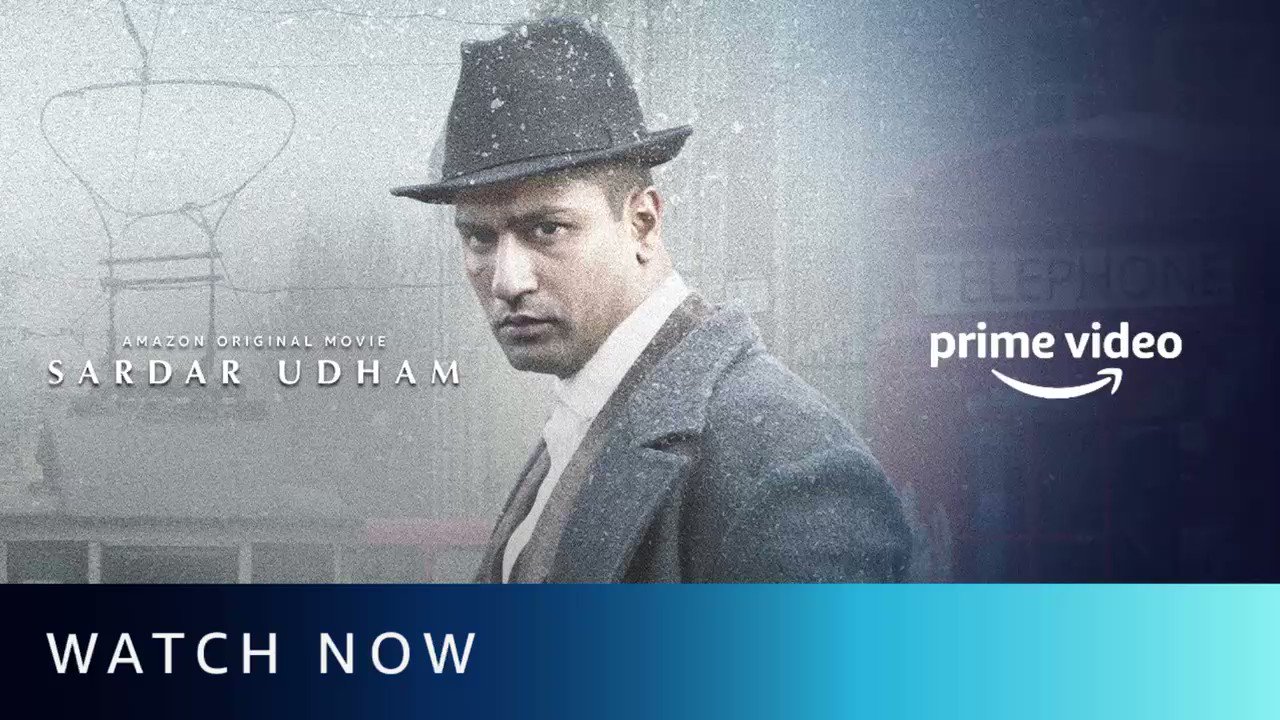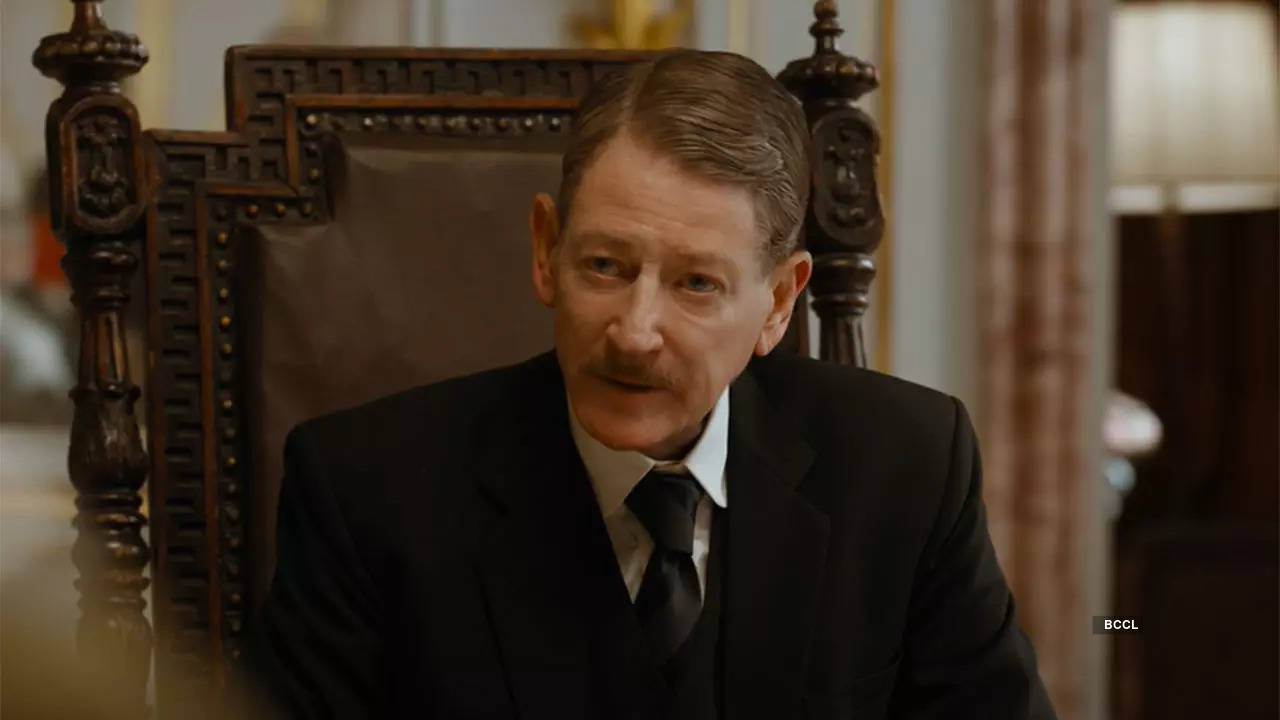Sardar Udham Movie Review: Ticking Time Bomb Waiting To Explode

Back in school, we had a healthy habit of taking turns. It was common in literature and history classes, where chapters took longer. A new teacher would come in, ask us where we were going, and take us away. The experience was often complicated, and many of my classmates chose to fall asleep. However, I remember that different feeling – the opportunity to hear a slightly different perspective on something set on stone.
Watching Sardar Udham – the film of the Indian translator who shot Michael O’Dwyer in London in 1940, apparently in retaliation for the 1919 Jallianwala Bagh massacre in Amritsar (O’Dwyer was the Lieutenant Governor of Punjab at the time) – feels like living in the area.
Director Shoojit Sircar and screenwriters Shubhendu Bhattacharya and Ritesh Shah adhered to the facts and kept the broad plates of patriotism circulating. But they also discard the chronology and smuggle interesting modern comments between the lines. Can the audience today cry as they watch Bhagat Singh being led into the trap? They certainly will. But what about the flashback where he explains the teachings of the ‘true convert,’ which he says cannot “bias, cohesive, divergent”?
The Storyline of Sardar Udham (3.0/5 Rating)
Early in 1931, Bhagat Singh’s movement was crushed, and Udham was imprisoned. He goes out and prepares for London (Vicky Kaushal’s brother, who is the lead actor, Sunny, does the same for entirely wrong reasons in Shiddat).
Working with foreigners, he refers to an external program to reunite lost rebels. Suddenly, however, we see him circling the words with O’Dwyer, his eyes full of murderous blood. Before we know it, he’s in Caxton Hall, putting in six rounds for the frail elderly O’Dwyer and two other former employees of the Raj.
The cuts from 1934, when Udham arrived in London, to 1940, when he retaliated, are almost invisible and designed to deceive. The purpose, I believe, was to relieve the tension of a happy person, thus allowing other aspects of his life – his many journeys to seek help, memories of Punjab – to find the right motivation. It sounds promising, except Shoojit’s kind of good use of all the time he buys.
The colourful details – Udham has worked as everything from underwear retailer to more London film set – are fast-paced, while his two love stories are cut and business-like. It is as if the builders wanted to get into these aspects of the liberation struggle, but they were afraid to go beyond that.
In a dignified sequence, Udham attracts the unsuspecting O’Dwyer and finds work in his house. Regardless of the historical accuracy of this episode, it has touched me as a symbol of the film’s incredible ambitions – and that sooner or later, every biopic offers one. “That’s a feature I’ve always admired for Indians,” O’Dwyer tells Udham, “a willingness to entertain” – a line that needs as much as anything from Lagaan or Bhagat Singh’s Tale. 
“He had no regrets at all,” Udham said later, confirming the victim’s plight to prosecutors and us. As a productive image of Bollywood in London, Sardar Udham comes home with dignity. There are no extensions for a tacky set or an exaggerated costume.
Cinema artist Avik Mukhopadhyay captures great street scenes with great speed. The Jallianwala Bagh massacre, which lasts 110 minutes and lasts until the end, is a visual and emotional foundation for the film. It pulls in like a nightmare full of blood, a bold closing that elevates Udham as a human hero.
Vicky Kaushal is old enough to play characters with an extended timeline. You face difficult situations with confidence; you can hear his annoyance as Sardar Udham recounts the massacre of 1919, with pictures showing him as a young boy. However, the role of the role seems to place a heavy burden on the character. He glows at the unexpected, picks up the laddoo with pleasure, or admits surprise: “Tussi jante ho?”
In court, Udham announces his name as Ram Mohammad Singh Azad – a representative, we are told, of Indian religious unity. He also swears by the letter of Heer Ranjha, which is not a ‘revolt’ the judge fears. When they face the big one, these are the bit rebels, and they jump and shine in Sircar’s film. Almost but aloud, they are talking here and now.
Vicky Kaushal as Sardar Udham dips her toes in the untreated water. He tries his best to convey unspoken words, but a film like this needs Irrfan to speak it with his own eyes. You can count on the veteran actor to suggest parts that need peace. Vicky is unique in some scenes. In a particularly intoxicating setting, his 20-something presentation and his climax interview with a British detective successfully managed to bring out the best in him as an actor.
He wondered, “Now Jawani kakoi matlab bana?” it broke his heart. The text tries to avoid clichés but ends up sounding more modern than that. Bhagat Singh’s English speeches, such as, “Hum sirf exploitation then against hai. Humein semi-independence nahi chahiye,” said inappropriate considering the setting. The line on your mind is that Udham remembers his turbulent past and asks a British official, “What did you do when you were 23 years old?”
Sardar Udham’s bravery did not roar. Whispering. This freedom fighter travelled across continents, using nicknames and lying on the ground for the rest of his life. Sardar Udham was so obsessed with his quest for equality to make a noise. If you wish to know about his quiet presence, this film is for you.
Article Proofread and Edited by Shreedatri Banerjee





